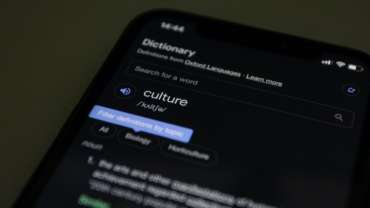As someone affected by language and cultural dynamics, I understand the concerns and frustrations surrounding the creation of a Black dictionary. This issue is not only about the annoyance it causes, but also the historical and ongoing consequences of cultural appropriation and exploitation.
Throughout history, marginalized communities, including the Black community, have developed their own unique lexicon and linguistic expressions. These words and phrases serve as more than just a means of communication; they embody a shared culture, providing comfort and safety within the community. They create a sense of belonging and allow for coded communication in situations where safety may be compromised in public spaces. This linguistic shorthand fosters a quicker sense of community and connection among individuals who can relate to and understand each other’s experiences.
However, the co-opting of this language by outsiders, facilitated by platforms like TikTok, has far-reaching implications. It perpetuates a system where cultural exports are detached from their original creators, enabling exploitation without proper attribution. This not only undermines the cultural significance of these words, but also perpetuates racist and classist practices.
The adoption of what some refer to as the “TikTok dialect” and the creation of a cipher for those seeking to understand without investing in the culture is highly disruptive. It fails to acknowledge the rich historical context and significance behind these linguistic expressions. Moreover, it does not legitimize African American Vernacular English (AAVE) as a valid social dialect or prevent the linguistic superiority and discrimination faced by its users, except when it comes to white TikTok creators who can profit from its usage without facing the same consequences.
The appropriation of Black language perpetuates systemic racism and classism. Linguistic inferiority becomes imposed upon those who use these expressions authentically, with their speech often viewed as lesser or less intelligent. It is disheartening to witness the cultural and linguistic richness of African American Vernacular English (AAVE) being devalued and marginalized. Unfortunately, the adoption of these expressions by white individuals on TikTok typically leads to their rapid rise in popularity, accompanied by lucrative advertising contracts and millions of followers, thereby perpetuating existing power imbalances.
Looking towards the future, it is essential to recognize the importance of language as a cultural heritage and empower marginalized communities in reclaiming and preserving their linguistic identities. This includes fostering a greater understanding and appreciation of AAVE and other marginalized dialects as legitimate and valuable forms of expression.
This article was adapted from this post.

